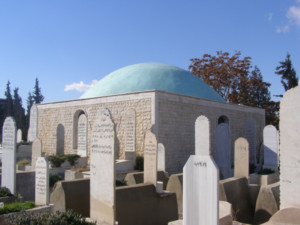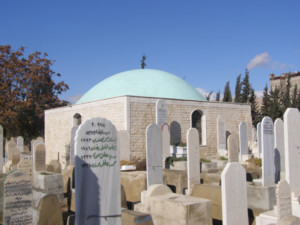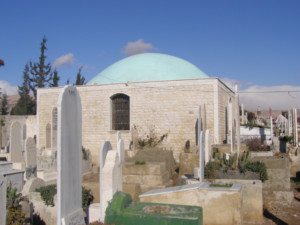Bio: `Abd al-Malik b. Marwan
`Abd al-Malik b. Marwan
b. 25 H. in Madinah – d. 86/7 H. in Damascus
أبو الوليد عبد الملك بن مروان
radiya Allah anhu
﷽
English
Ibn Khaldun stated that
“`Abd al-Malik ibn Marwan is one of the greatest Arab and Muslim Caliphs. He followed in the footsteps of `Umar ibn al-Khattab, the Commander of the Believers, in regulating state affairs”.
He was a well-educated man and capable ruler who was able to solve many political problems. He ruled for 21 years, and extended and consolidated Muslim rule.
He spent the first half of his life with his father, Marwan bin Al-Hakam fourth Umayyad caliph, in Medina, where he received religious instruction and developed friendly relations with pious circles of that city that were to stand him in good stead in his later life. As caliph, he treated the scholars with respect, and his private life was close to their ideals. As a result, many were to abandon their earlier opposition to Umayyad rule.
‘Abd al-Malik became caliph after the death of his father Marwan I in 685. Within a few years, he dispatched armies, under Al-Ḥajjaj bin Yousef, on a campaign to reassert Umayyad control over the Islamic empire. In an attemtpt to oust ‘Abd Allah ibn al-Zubayr from Makka, Al-Hajjaj besieged the Holy City, and bombarded it with catapults. ‘Abd Allah ibn al-Zubayr was killed in the final fighting around the Ka’ba.
‘Abd al-Malik assiend Al-Ḥajjaj as governor of Iraq, where he quelled revolts consolidated Umawi rule, paving the way to further territorial expansion, from Anatolia to the far Maghrib.
For the first time, a special currency for the Muslim world was minted, which led to war with the Byzantine Empire. The Byzantines were decisively defeated by `Abd al-al-Malik in Sevastopol, after the defection of a large contingent of Slavs. The Islamic currency was then made the only currency of exchange in the Muslim world.
Many other important changes took place under the rule of `Abd al-Al-Malik:
– He introduced reforms in agriculture and commerce.
– He made Arabic the state language. During his reign, all important records were translated into Arabic.
– He organised a regular postal service.
– He repaired the damaged Kaaba and began the tradition of weaving a silk cover for the Kaaba in Damascus.
He was the first in Islam to be called `Abd al-Malik [Ziarat al-Sham p. 33:f4]
To history, Abd al-Malik is known as the “Father of Kings”: his four sons succeeded him as the caliph one after another[18] though with Umar II, son of Abd al-Aziz succeeding Sulayman. Abd al-Malik died at al-Sinnabra in 705.[19]
عربي
Ref: ar.wikipedia.org
Burial Place
Refs
Related Posts
None found



